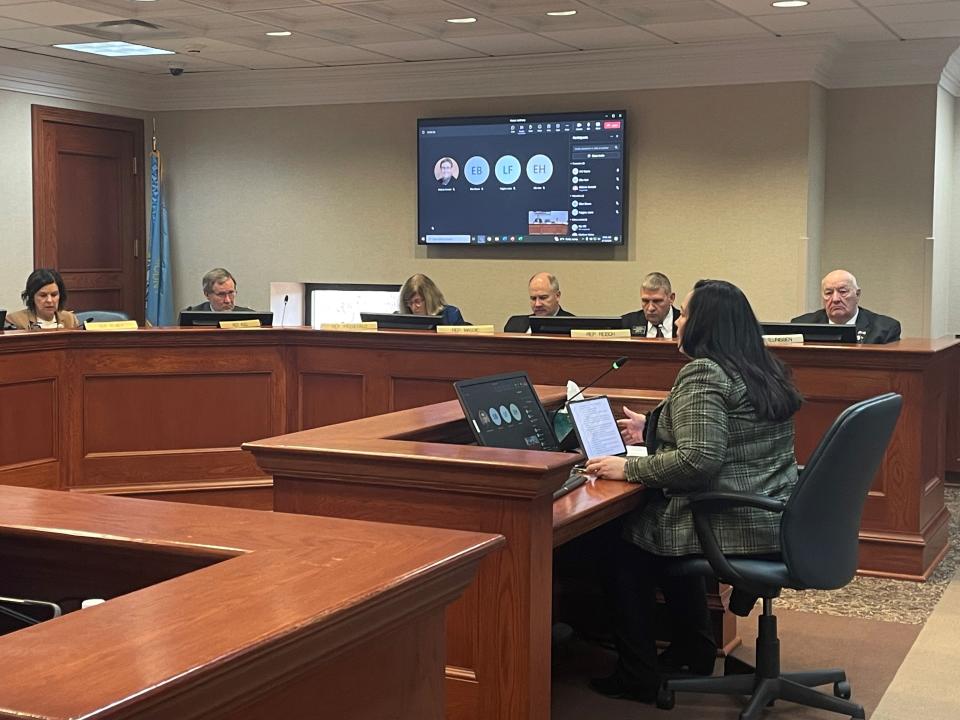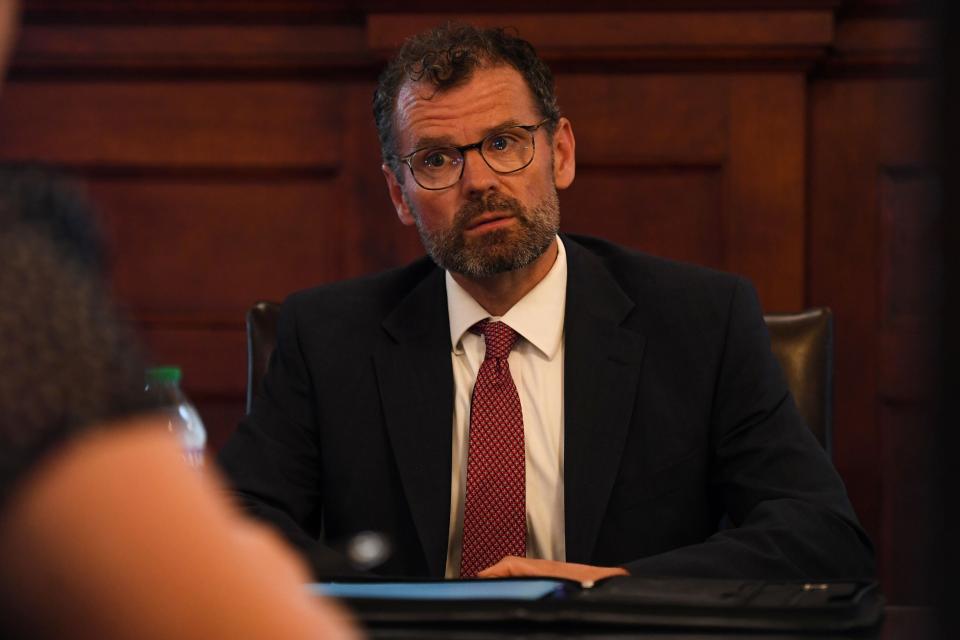Committee defeats bill meant to enshrine active efforts for all children in foster care
PIERRE — A bill to ensure all children in South Dakota’s foster care system have a standard of active efforts applied to their cases failed Monday morning.

HB 1151 would have made it so that active efforts, a list of ways the Department of Social Services and the courts work to quickly reunify children with their parents during abuse and neglect proceedings, applies for all children. Currently, active efforts are part of the federal Indian Child Welfare Act and only applies to Native American children. Other children who aren’t Native in state law are subject to reasonable efforts.
“That's an inequity, so what this bill seeks to do is to bring those active efforts up for all children,” said Rep. Peri Pourier, D-Rapid City, who sponsored the bill, adding it from over a year of work after she had initially proposed placing the definition of active efforts into state law for only Indian children.
The main point of contention came from the bill’s financial cost: an estimated $3 million from the state’s budget to provide DSS an additional 45 to 60 employees who would administer active efforts to non-Native families who make up just over 25% of children in custody.
Matt Althoff, DSS secretary, said that while 74% of children in state care were Native American during fiscal year 2023, about 52% were receiving active efforts as defined by ICWA. The other 22% of Native children had their cases transferred to tribal court.
More: Native American child welfare bills return to legislature after federal ICWA upheld
“Why that's relevant is because we know nonetheless with 52% of our youth that are in our custody and are subject to ICWA, we have a good understanding of what active efforts are,” he said, adding that his staff already applies active efforts and that it takes a great amount of time.
A six-month joint investigation by South Dakota Searchlight and the Argus Leader following last year’s session explored the causes, effects and potential solutions to the decades-long overrepresentation of Native American children in South Dakota’s foster care system. Native American children accounted for nearly 74% of the foster care system in June 2023 — despite accounting for only 13% of the state’s overall child population.
Pourier's bill was part of a package of bills from Democratic and Republican lawmakers meant to address issues families face within the South Dakota foster care system.
Althoff said that the ongoing expenditure to the state “was a big commitment on the part of South Dakotans” and didn’t fit into Gov. Kristi Noem’s proposed budget.

Jim Sword, a Hot Springs lawyer and former Oglala Lakota State’s Attorney, said the court system has a piecemeal approach to active efforts and the bill would’ve allowed the state to set the standard of what active efforts were and apply them to all children.
“What we're doing here is giving the child more resources and more opportunities,” he said, noting that he’s seen abuse and neglect cases from start to end. “I know that if active efforts happen early on in the case, the result at the end of the case is much better.”
The bill listed 11 different active efforts DSS and social workers could apply to abuse and neglect proceedings. The list mirrors the active efforts laid out by the Bureau of Indian Affairs in the application of ICWA.
For example, if a parent needs to overcome substance abuse, an active effort would be helping that parent with a ride to a treatment class, said Kehala Two Bulls, the executive director of the 7th Circuit Court CASA program. A reasonable effort would be giving that parent a list of treatment programs.
More: The Lost Children: An Argus Leader/South Dakota Searchlight investigation into ICWA in SD
“When we offer those active efforts at the beginning for parents, we know that whether they succeed or fail, they're doing that with every possible chance of success with every possible chance at reunification,” she said.
During discussion between lawmakers before the bill was defeated 8-5, Rep. Rebecca Reimer, R-Chamberlain, noted that there had been a variety of testimony about the interpretation of active efforts.
“How do we put something into law when everybody's interpreting this differently?” she said. “And so I'm wondering if this comes down to more of some internal audits of DSS and what is reasonable efforts?”
While Reimer voted to defeat the bill, she said she wouldn’t be opposed to finding more employees for DSS in the future if the department could fully define active and reasonable efforts.
“I do hope that the Department Social Services listens to this and they hear this loud and clear that we need examples of reasonable efforts and active efforts,” she said.
This article originally appeared on Sioux Falls Argus Leader: Active efforts bill in SD legislature killed

